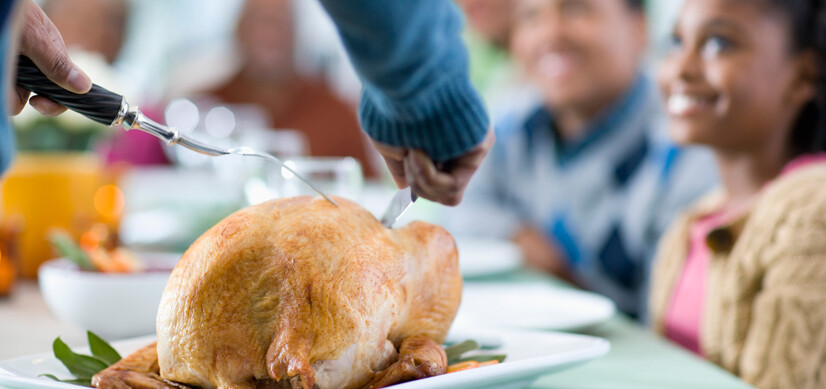Lighten your load, trim the guilt and savor the magic of the season.
Does your annual holiday tradition include eating first and feeling guilty later? Don’t let your fork, or your psyche, do all that heavy lifting. Samuel Blackwell, MD, a family medicine doctor at Duke Primary Care Apex, offers five simple tricks to lighten your load, trim the guilt and savor the magic of the season.
1. Eat dessert for breakfast.
Research suggests that eating something sweet at breakfast can control cravings throughout the day and may help maintain weight loss. “That doesn’t mean you should eat a pie for breakfast,” Dr. Blackwell cautions. Nor does it apply to diabetics who should avoid sweets in general. Rather, Dr. Blackwell recommends eating sweets for breakfast as part of a balanced diet that includes protein and fiber.
2. Think like a vegan.
Nobody is suggesting you give up red meat! What you should do, says Dr. Blackwell, is choose vegetables first at holiday dinners and party buffets. Fill more than half your plate with vegetables -- avoiding those laden in sauce and cheese -- and start your meal by eating them first. Ideally, you’ll fill up on vegetables before consuming the higher fat content foods on your plate.
3. Thicken your food, not your waistline.
A recent study finds the thicker a low-fat food is, the more satisfying it will be. With this in mind, Dr. Blackwell suggests including creamy soups that use pureed vegetables as your base (rather than cream) for your festive meal’s appetizer. Opt for low-fat Greek yogurt instead of sour cream. Or, substitute low-fat cheeses in family favorites when creating thick and creamy sauces.
4. Eat at home.
While it may be more convenient to grab a bite to eat after a busy day of holiday shopping, a new study finds that families who eat out consume more calories. Kids, in particular, eat more fat, sodium and sugar, Dr. Blackwell says, and that puts them at higher risk for obesity, heart disease, diabetes and more. “A home-cooked, well-balanced meal is your family’s best bet,” he counsels.
5. Don’t use food to de-stress.
It’s common for those coping with holiday stress to look for comfort in food. Instead, take a walk, call a friend or join a support group. “Find positive ways to manage the stress of the season that don’t involve eating,” says Dr. Blackwell.





